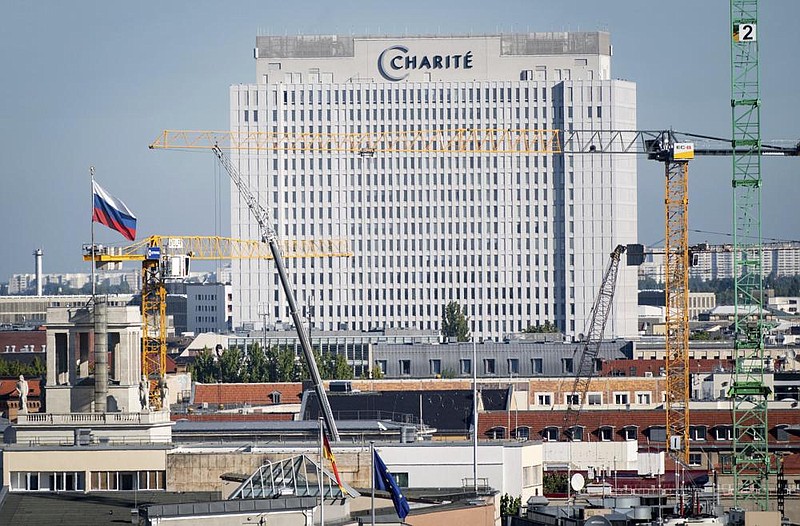BERLIN -- German Chancellor Angela Merkel faced growing pressure Thursday to take a harder line with Moscow after confirmation that Russian opposition leader Alexei Navalny was poisoned with a nerve agent.
Merkel condemned the attempt to "silence" Navalny in the "strongest possible terms" after a German military laboratory Wednesday confirmed the use of a Novichok group nerve agent against President Vladimir Putin's most effective opposition critic, who is being treated in a Berlin hospital after falling ill in Russia last month.
Even as Merkel has demanded answers from Moscow, she has also showed little sign of wavering in her support for Nord Stream 2, a planned natural gas pipeline from Russia to Germany that the Trump administration has vehemently opposed.
"His message is clear: Resistance to his regime is life threatening," Norbert Rottgen, a senior member of Merkel's Christian Democratic Party and head of the parliamentary foreign affairs committee, who has called for work on the Nord Stream 2 to be halted to punish Putin.
"In this context diplomatic rituals are no longer enough," he said.
White House press secretary Kayleigh McEnany said that Navalny's poisoning was "reprehensible" and that Washington is working with allies "to hold those in Russia accountable wherever the evidence leads and restrict funds for their malign activities."
[Video not showing up above? Click here to view » https://www.youtube.com/watch?v=D650hNZUkI0]
But European diplomats were already cautioning about potential complications in imposing sanctions since the poisoning took place on Russian soil, making it more difficult to investigate and determine who carried out the attack.
Nerve agents in the Novichok family were used in previous attacks blamed on Russian agents and Yulia Navalnaya, Navalny's wife, blamed "state terrorists" for the poisoning.
Novichok, developed in the Soviet Union, was used in the attempted assassination of former Russian spy Sergei Skripal and his daughter Yulia in Salisbury, Britain, in 2018. British authorities charged two Russian military intelligence agents over the poisoning, which British officials said was probably ordered at a senior level of the Russian state.
The fact that the attack took place in Britain made it easier to investigate and prove a Kremlin connection, said two European diplomats, speaking on condition of anonymity to discuss confidential EU considerations. It also killed EU citizens, meaning countries felt they had to impose swift retaliation, the diplomats said.
In Brussels, European Commission spokesman Peter Stano said new sanctions were not yet being discussed because the culprit has not yet been conclusively identified.
Putin's spokesman, Dmitry Peskov, called on Europe and Germany not to rush to judgment, adding that Russia has little information on the basis of the German findings. He said any talk of sanctions against Russia was "unacceptable."
"We do not understand the reason for raising the topic of sanctions," he said Thursday. "We certainly would not want our partners in Germany and other European countries to rush to judgment. We would prefer dialogue."
While Nord Stream 2 may be too close to completion for a change of course, Merkel's sharp criticism of Moscow marked a shift, said Daniela Schwarzer, director of the German Council on Foreign Relations.
"There is a clear willingness to lead on the Russia issue," she said.
Germany announced Wednesday it would consult with its allies on an appropriate response as Western officials expressed shock over the use of the nerve agent against the opposition leader.
"The main question is how far the [European Union] and particularly the U.S. will dare to go, given the damage that could be caused to them," Ivan Timofeyev, program director at the Russian Council for International Affairs, told the business newspaper Kommersant.
Navalny, who fell ill on Aug. 20 during a trip to Siberia, remains in a medically induced coma the Charite Hospital in Berlin where doctors have said his condition remains serious but is improving, though it remains unclear what the long-term impact will be.
Russian opposition figures have blamed the poisoning on Putin, given that Novichok is believed to be available only to state agencies.
Information for this article was contributed by Fiona Weber-Steinhaus, Michael Birnbaum and Felicia Sonmez of The Washington Post.
